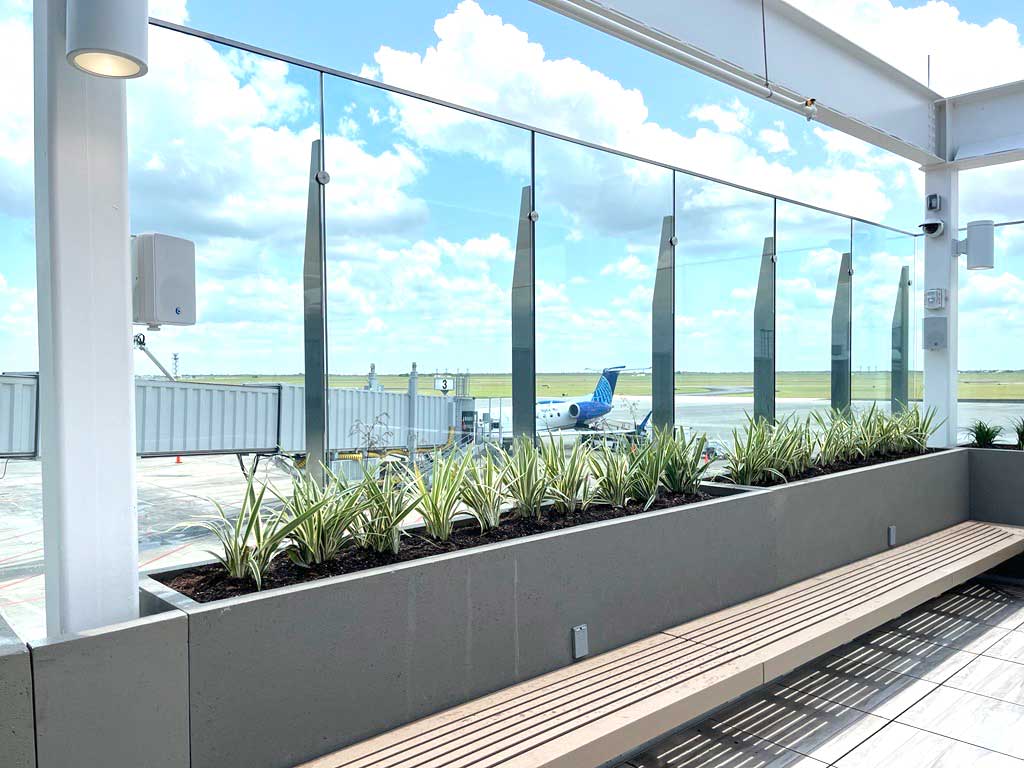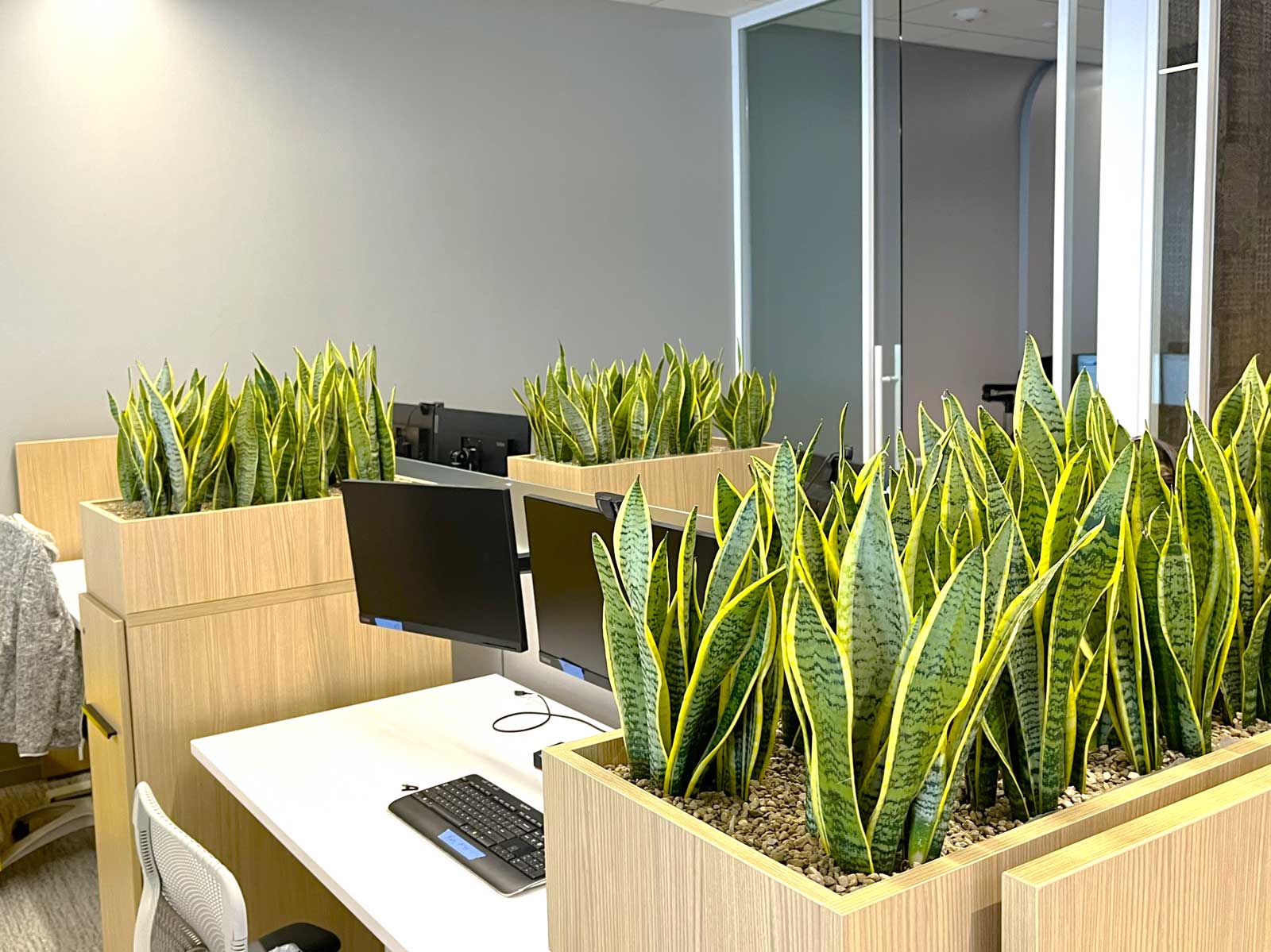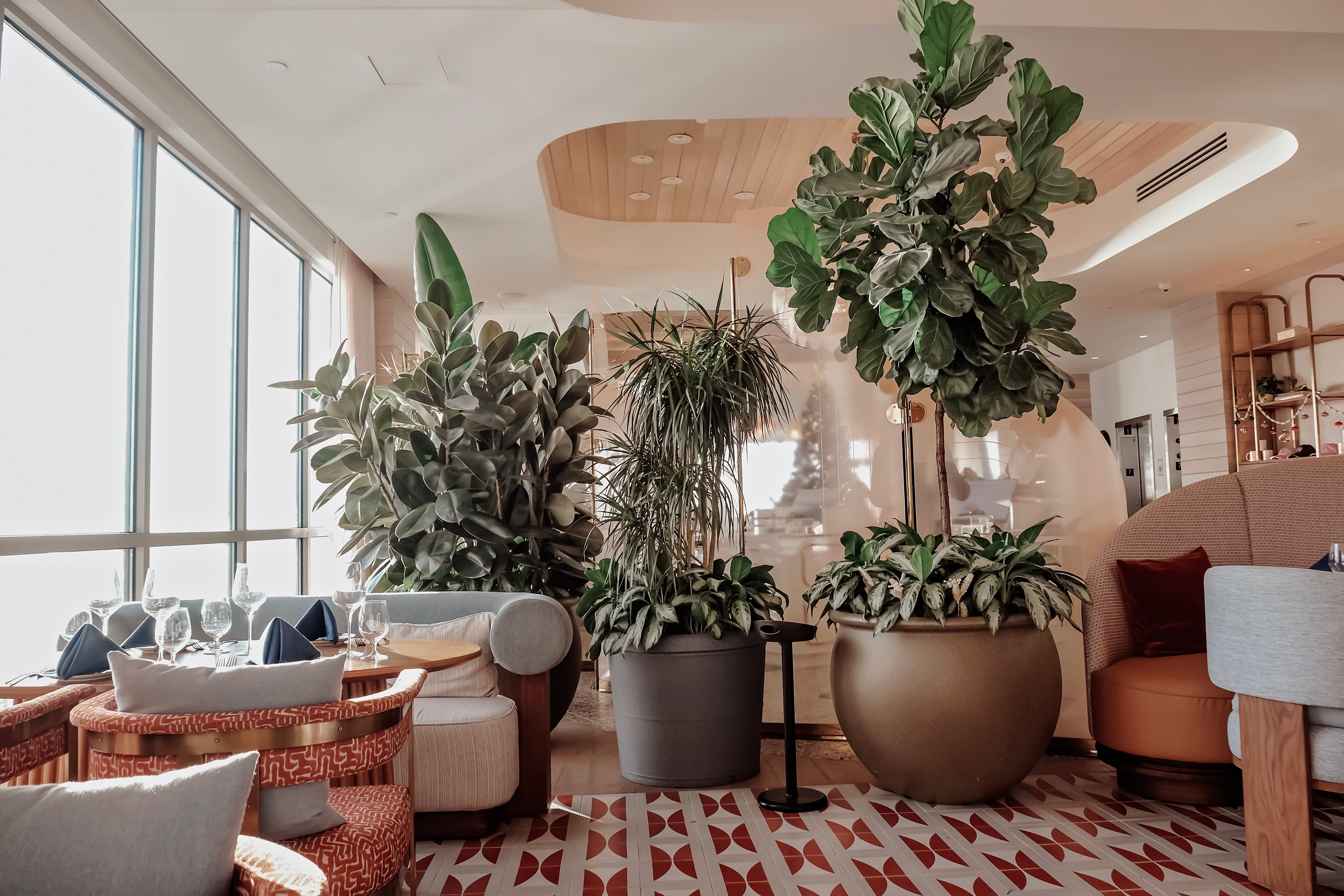Indoor Plants for a Healthy Work Environment
Creating and maintaining a healthy work environment isn’t just a nice perk to offer employees. An office setting that promotes cleanliness and comfort can pay for itself by reducing missed work days, avoiding the spread of illness, and increasing worker productivity. However, what’s the best way to go about it? Studies show that adding the right kinds of indoor plants to your business or office setting can go a long way toward the creation of a cleaner, safer, healthier work space. This also applies to homes, classrooms, hospitals, and anywhere people are working inside and in close proximity to each other.
Air quality is a leading environmental concern in the United States. Ever wonder why illness travels so quickly around an office even when there’s hand sanitizer everywhere and no one is sharing straws? Re-circulated air is a huge culprit in spreading cold, flu, and other germs around crowded areas. Some studies suggest that indoor air can have up to six times the concentration of pollutants of outside air. If your staff is beset by frequent colds, sore throats, coughing, sneezing, etc., air pollution could be a factor. Hardy plants like ivy or members of the palm family work to filter the air, drastically reducing pollutants and improving employee mood, productivity, and overall well-being. This translates to workers who are more focused, more engaged, making fewer mistakes, and who may even smile more. Happily, smiles are even more contagious than illness.
Now that you know why your office or business needs indoor plants, maybe you’re not sure how to get started. The next step is to find a great supplier in your area. They can take a look at your space, your needs, and your budget in order to help you decide exactly which indoor plants are best for you. Insist on a supplier who can tell you where their inventory comes from, and who can guarantee plant quality and maintenance. Indoor plants don’t just look great; they improve health, mood, and the very air we breathe.




